Fleurs du Mal Magazine


Or see the index

Houvast
Kennen wij niets meer dan nagebootste
gebarentaal? Soms, soms is de waarheid
moeilijk. Bij een vraag als Spant de boog
de pees, of kromt de pees de boog? is ons
de grens van wetten te vaag. Er is geen
weerstand zonder tekenen aan de wand.
Van verbeelding geven zij misleidende
straling af, als fosforstronken in het woud.
Houvast: de cartografie van het geheugen,
het register van de weemoed. En natuurlijk,
sterk en zacht als gepolijst olijvenhout,
de eeuwigheid. Die eeuwigheid. ‘O’ zegt
de een er voor, en ‘Ach’ de ander….
Bert Bevers
Houvast
Verschenen in de uitgave ter herdenking van Erik Heyman (1960-2010),
Voorspel, Liedekerke/Aalst, 2010
• fleursdumal.nl magazine
More in: Archive A-B, Archive A-B, Bevers, Bert
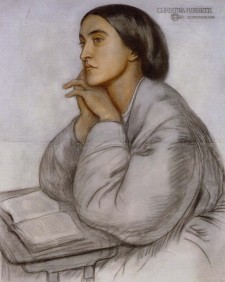
Summer
Winter is cold-hearted
Spring is yea and nay,
Autumn is a weather-cock
Blown every way:
Summer days for me
When every leaf is on its tree;
When Robin’s not a beggar,
And Jenny Wren’s a bride,
And larks hang singing, singing, singing,
Over the wheat-fields wide,
And anchored lilies ride,
And the pendulum spider
Swings from side to side,
And blue-black beetles transact business,
And gnats fly in a host,
And furry caterpillars hasten
That no time be lost,
And moths grow fat and thrive,
And ladybirds arrive.
Before green apples blush,
Before green nuts embrown,
Why, one day in the country
Is worth a month in town;
Is worth a day and a year
Of the dusty, musty, lag-last fashion
That days drone elsewhere.
Christina Georgina Rossetti
(1830 – 1894)
Summer
• fleursdumal.nl magazine
More in: 4SEASONS#Summer, Archive Q-R, Archive Q-R, Rossetti, Christina

Winters erfrecht
Gesloten luiken, gezegende ogen.
Het mededogen van sneeuw
verrast zelfs kinderen.
Er gaat geen eeuw voorbij
als er niets gebeurt.
Geheugen van geuren
is legendarisch.
Bert Bevers
Winters erfrecht
Eigen terrein,
Uitgeverij WEL, Bergen op Zoom, 2013
• fleursdumal.nl magazine
More in: 4SEASONS#Winter, Archive A-B, Archive A-B, Bevers, Bert

Written at Midnight
While thro’ the broken pane the tempest sighs,
And my step falters on the faithless floor,
Shades of departed joys around me rise,
With many a face that smiles on me no more;
With many a voice that thrills of transport gave,
Now silent as the grass that tufts their grave!
Samuel Rogers
(1763 – 1855)
Written at Midnight, 1786
• fleursdumal.nl magazine
More in: # Classic Poetry Archive, Archive Q-R, Archive Q-R
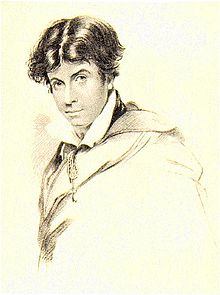
Cupid Drowned
T’other day as I was twining
Roses, for a crown to dine in,
What, of all things, ‘mid the heap,
Should I light on, fast asleep,
But the little desperate elf,
The tiny traitor, Love, himself!
By the wings I picked him up
Like a bee, and in a cup
Of my wine I plunged and sank him,
Then what d’ye think I did?—I drank him.
Faith, I thought him dead. Not he!
There he lives with tenfold glee;
And now this moment with his wings
I feel him tickling my heart-strings.
James Henry Leigh Hunt
(1784 – 1859)
Cupid Drowned
From: Poems That Every Child Should Know
• fleursdumal.nl magazine
More in: # Classic Poetry Archive, Archive G-H, Archive G-H, Hunt, Leigh
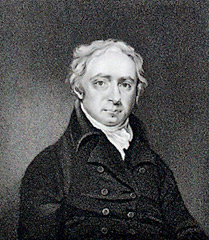
The Dying Slave
Faint-gazing on the burning orb of day,
When Afric’s injured son expiring lay,
His forehead cold, his labouring bosom bare,
His dewy temples, and his sable hair,
His poor companions kissed, and cried aloud,
Rejoicing, whilst his head in peace he bowed:—
Now thy long, long task is done,
Swiftly, brother, wilt thou run,
Ere to-morrow’s golden beam
Glitter on thy parent stream,
Swiftly the delights to share,
The feast of joy that waits thee there.
Swiftly, brother, wilt thou ride
O’er the long and stormy tide,
Fleeter than the hurricane,
Till thou see’st those scenes again,
Where thy father’s hut was reared,
Where thy mother’s voice was heard;
Where thy infant brothers played
Beneath the fragrant citron shade;
Where through green savannahs wide
Cooling rivers silent glide,
Or the shrill cicalas sing
Ceaseless to their murmuring;
Where the dance, the festive song,
Of many a friend divided long,
Doomed through stranger lands to roam,
Shall bid thy spirit welcome home!
Fearless o’er the foaming tide
Again thy light canoe shall ride;
Fearless on the embattled plain
Thou shalt lift thy lance again;
Or, starting at the call of morn,
Wake the wild woods with thy horn;
Or, rushing down the mountain-slope,
O’ertake the nimble antelope;
Or lead the dance, ‘mid blissful bands,
On cool Andracte’s yellow sands;
Or, in the embowering orange-grove,
Tell to thy long-forsaken love
The wounds, the agony severe,
Thy patient spirit suffered here!
Fear not now the tyrant’s power,
Past is his insulting hour;
Mark no more the sullen trait
On slavery’s brow of scorn and hate;
Hear no more the long sigh borne
Murmuring on the gales of morn!
Go in peace; yet we remain
Far distant toiling on in pain;
Ere the great Sun fire the skies
To our work of woe we rise;
And see each night, without a friend,
The world’s great comforter descend!
Tell our brethren, where ye meet,
Thus we toil with weary feet;
Yet tell them that Love’s generous flame,
In joy, in wretchedness the same,
In distant worlds was ne’er forgot;
And tell them that we murmur not;
Tell them, though the pang will start,
And drain the life-blood from the heart,—
Tell them, generous shame forbids
The tear to stain our burning lids!
Tell them, in weariness and want,
For our native hills we pant,
Where soon, from shame and sorrow free,
We hope in death to follow thee!
William Lisle Bowles
(1762 – 1850)
The Dying Slave
• fleursdumal.nl magazine
More in: # Classic Poetry Archive, *Archive African American Literature, Archive A-B, Archive A-B, Black Lives Matter, Racism

The Ecstasy
Where, like a pillow on a bed
A pregnant bank swell’d up to rest
The violet’s reclining head,
Sat we two, one another’s best.
Our hands were firmly cemented
With a fast balm, which thence did spring;
Our eye-beams twisted, and did thread
Our eyes upon one double string;
So to’intergraft our hands, as yet
Was all the means to make us one,
And pictures in our eyes to get
Was all our propagation.
As ‘twixt two equal armies fate
Suspends uncertain victory,
Our souls (which to advance their state
Were gone out) hung ‘twixt her and me.
And whilst our souls negotiate there,
We like sepulchral statues lay;
All day, the same our postures were,
And we said nothing, all the day.
If any, so by love refin’d
That he soul’s language understood,
And by good love were grown all mind,
Within convenient distance stood,
He (though he knew not which soul spake,
Because both meant, both spake the same)
Might thence a new concoction take
And part far purer than he came.
This ecstasy doth unperplex,
We said, and tell us what we love;
We see by this it was not sex,
We see we saw not what did move;
But as all several souls contain
Mixture of things, they know not what,
Love these mix’d souls doth mix again
And makes both one, each this and that.
A single violet transplant,
The strength, the colour, and the size,
(All which before was poor and scant)
Redoubles still, and multiplies.
When love with one another so
Interinanimates two souls,
That abler soul, which thence doth flow,
Defects of loneliness controls.
We then, who are this new soul, know
Of what we are compos’d and made,
For th’ atomies of which we grow
Are souls, whom no change can invade.
But oh alas, so long, so far,
Our bodies why do we forbear?
They’are ours, though they’are not we; we are
The intelligences, they the spheres.
We owe them thanks, because they thus
Did us, to us, at first convey,
Yielded their senses’ force to us,
Nor are dross to us, but allay.
On man heaven’s influence works not so,
But that it first imprints the air;
So soul into the soul may flow,
Though it to body first repair.
As our blood labors to beget
Spirits, as like souls as it can,
Because such fingers need to knit
That subtle knot which makes us man,
So must pure lovers’ souls descend
T’ affections, and to faculties,
Which sense may reach and apprehend,
Else a great prince in prison lies.
To’our bodies turn we then, that so
Weak men on love reveal’d may look;
Love’s mysteries in souls do grow,
But yet the body is his book.
And if some lover, such as we,
Have heard this dialogue of one,
Let him still mark us, he shall see
Small change, when we’are to bodies gone.
John Donne
(1572–1631)
The Ecstasy
• fleursdumal.nl magazine
More in: Archive C-D, Archive C-D, Donne, John
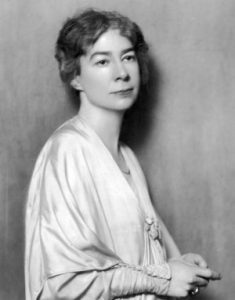
I Shall Not Care
When I am dead and over me bright April
Shakes out her rain-drenched hair,
Tho’ you should lean above me broken-hearted,
I shall not care.
I shall have peace, as leafy trees are peaceful
When rain bends down the bough,
And I shall be more silent and cold-hearted
Than you are now.
Sara Teasdale
(1884-1933)
I Shall Not Care
• fleursdumal.nl magazine
More in: #Editors Choice Archiv, Archive S-T, Archive S-T, Teasdale, Sara

Fame is a bee
Fame is a bee.
It has a song—
It has a sting—
Ah, too, it has a wing.
Emily Dickinson
(1830-1886)
Fame is a bee (1788)
• fleursdumal.nl magazine
More in: Archive C-D, Archive C-D, Dickinson, Emily
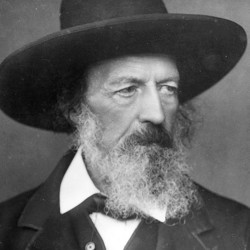
Ask me no more
Ask me no more: the moon may draw the sea;
The cloud may stoop from heaven and take the shape,
With fold to fold, of mountain or of cape;
But O too fond, when have I answer’d thee?
Ask me no more.
Ask me no more: what answer should I give?
I love not hollow cheek or faded eye:
Yet, O my friend, I will not have thee die!
Ask me no more, lest I should bid thee live;
Ask me no more.
Ask me no more: thy fate and mine are seal’d:
I strove against the stream and all in vain:
Let the great river take me to the main:
No more, dear love, for at a touch I yield;
Ask me no more.
Alfred Lord Tennyson
(1809-1892)
Ask me no more
• fleursdumal.nl magazine
More in: Archive S-T, Archive S-T, Tennyson, Alfred Lord

How to Kill
Under the parabola of a ball,
a child turning into a man,
I looked into the air too long.
The ball fell in my hand, it sang
in the closed fist: Open Open
Behold a gift designed to kill.
Now in my dial of glass appears
the soldier who is going to die.
He smiles, and moves about in ways
his mother knows, habits of his.
The wires touch his face: I cry
NOW. Death, like a familiar, hears
and look, has made a man of dust
of a man of flesh. This sorcery
I do. Being damned, I am amused
to see the centre of love diffused
and the wave of love travel into vacancy.
How easy it is to make a ghost.
The weightless mosquito touches
her tiny shadow on the stone,
and with how like, how infinite
a lightness, man and shadow meet.
They fuse. A shadow is a man
when the mosquito death approaches.
Keith Douglas
(1920 – 1944)
How to Kill
• fleursdumal.nl magazine
More in: Archive C-D, Archive C-D, Douglas, Keith, WAR & PEACE
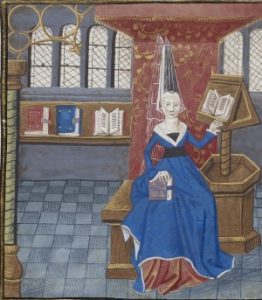
Comme surpris
Comme surpris
Et entrepris
De vostre amour,
Je me rens pris
En vo pourpris,
Dame d’onnour.
Si ne mespris
Quant j’entrepris
Si haulte honnour
Comme surpris.
Mais en despris
Ne m’ait le pris
De vo valour;
Car j’ay apris
Les biens compris
En vo doulçour
Comme surpris.
Christine de Pisan
(1364/1365 – 1430)
Comme surpris
Rondeaux
• fleursdumal.nl magazine
More in: # Classic Poetry Archive, Archive O-P, Archive O-P, Pisan, Christine de, The Ideal Woman
Thank you for reading Fleurs du Mal - magazine for art & literature